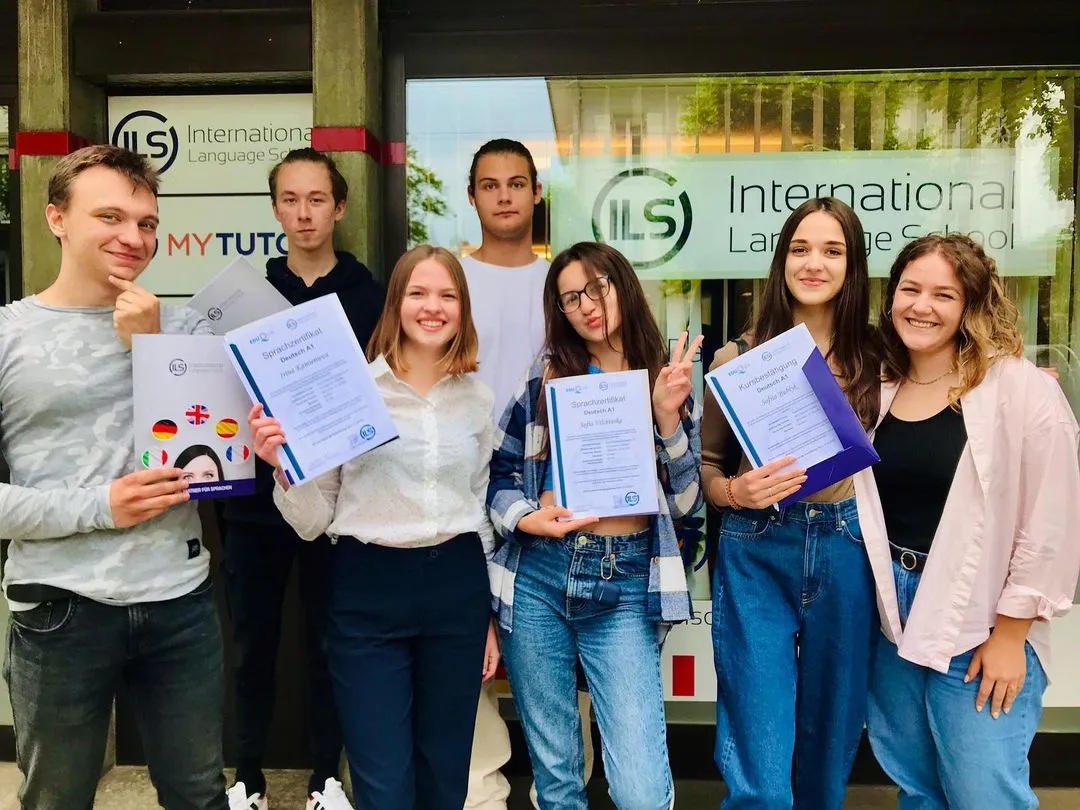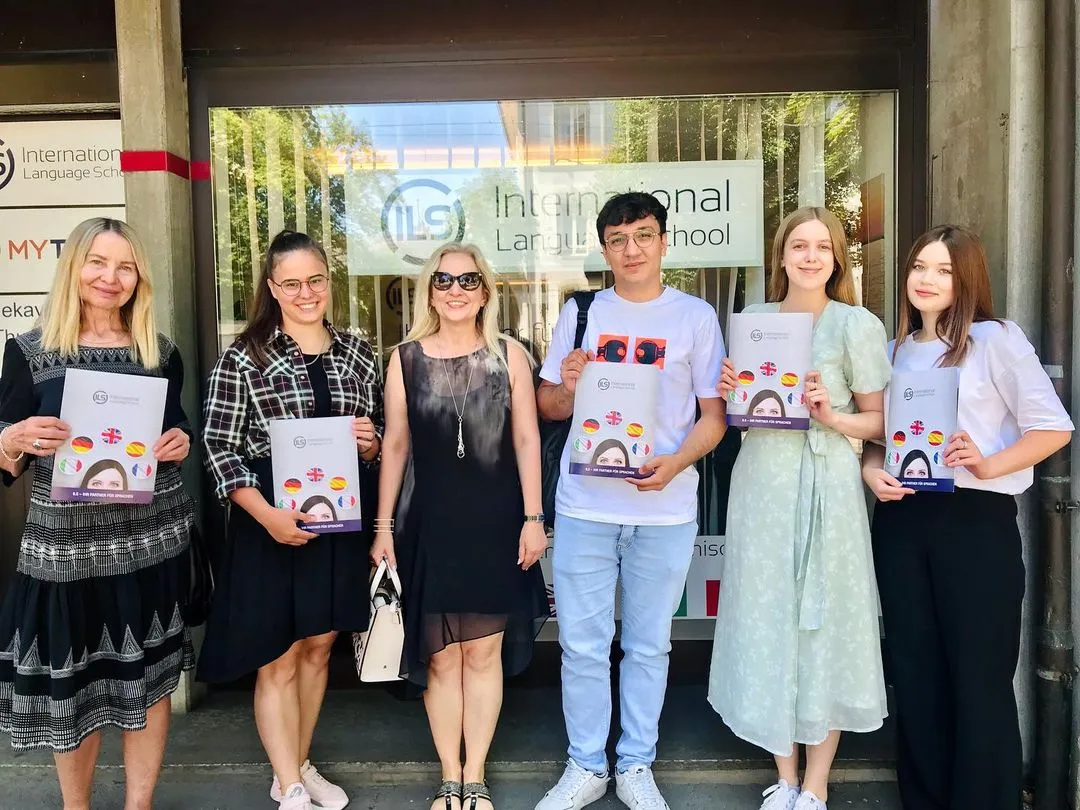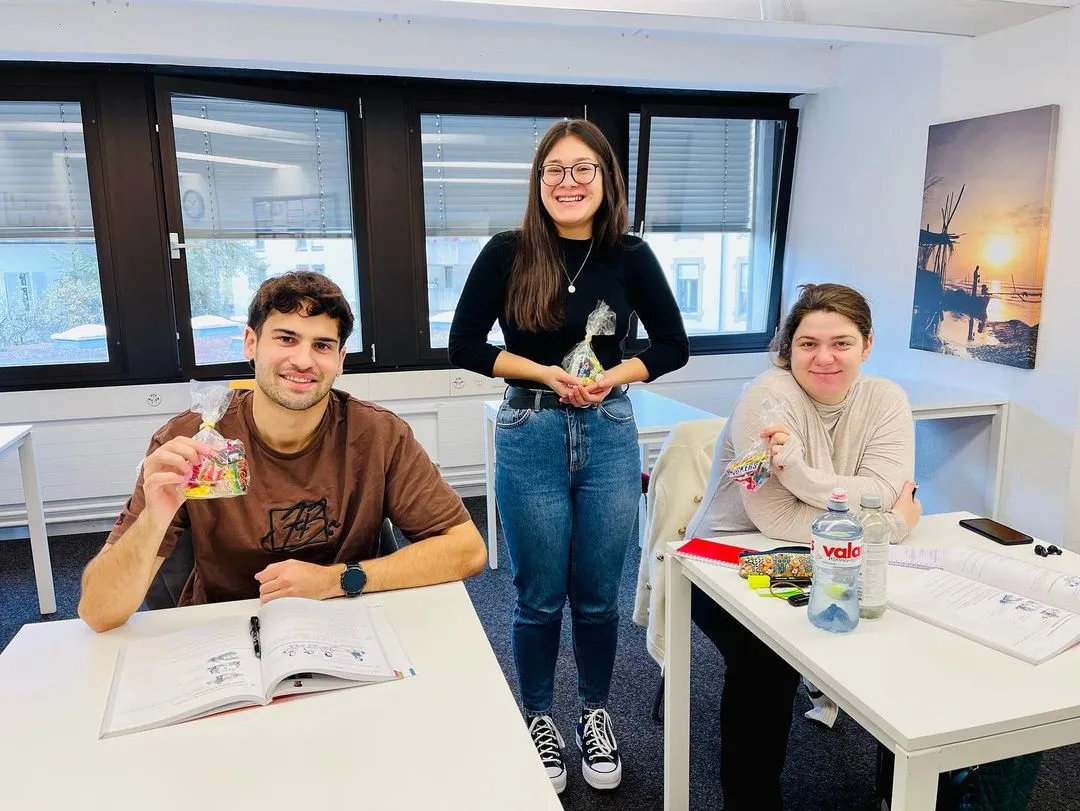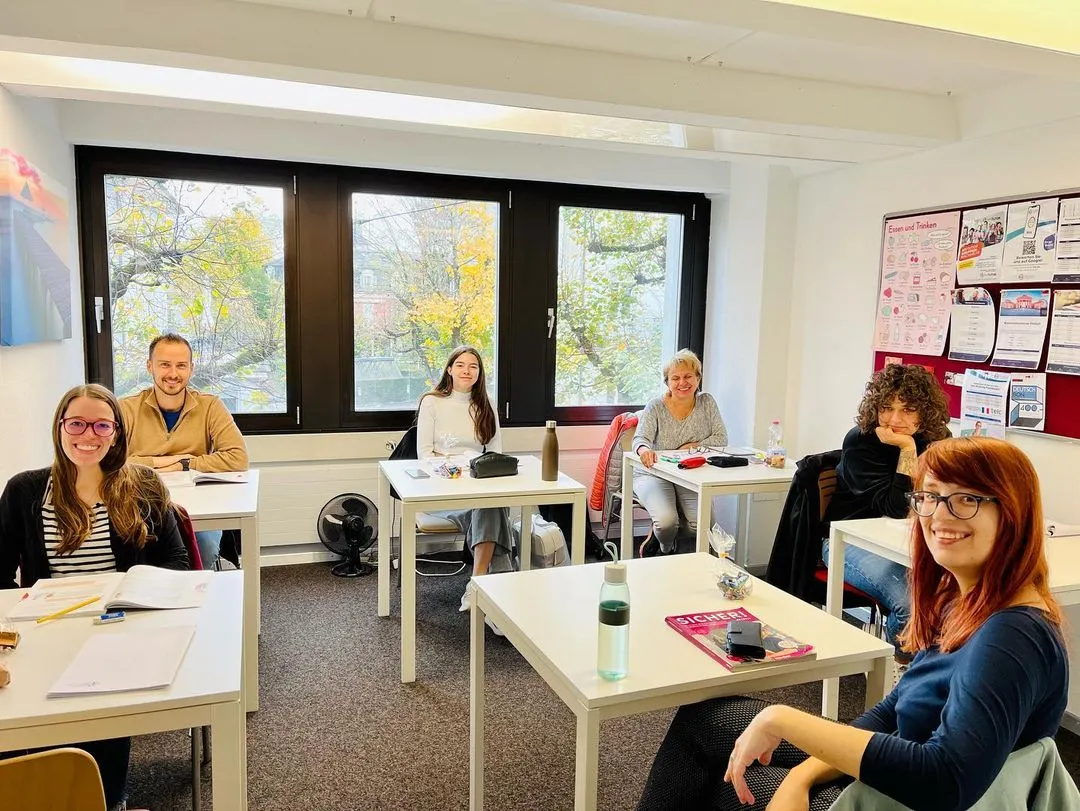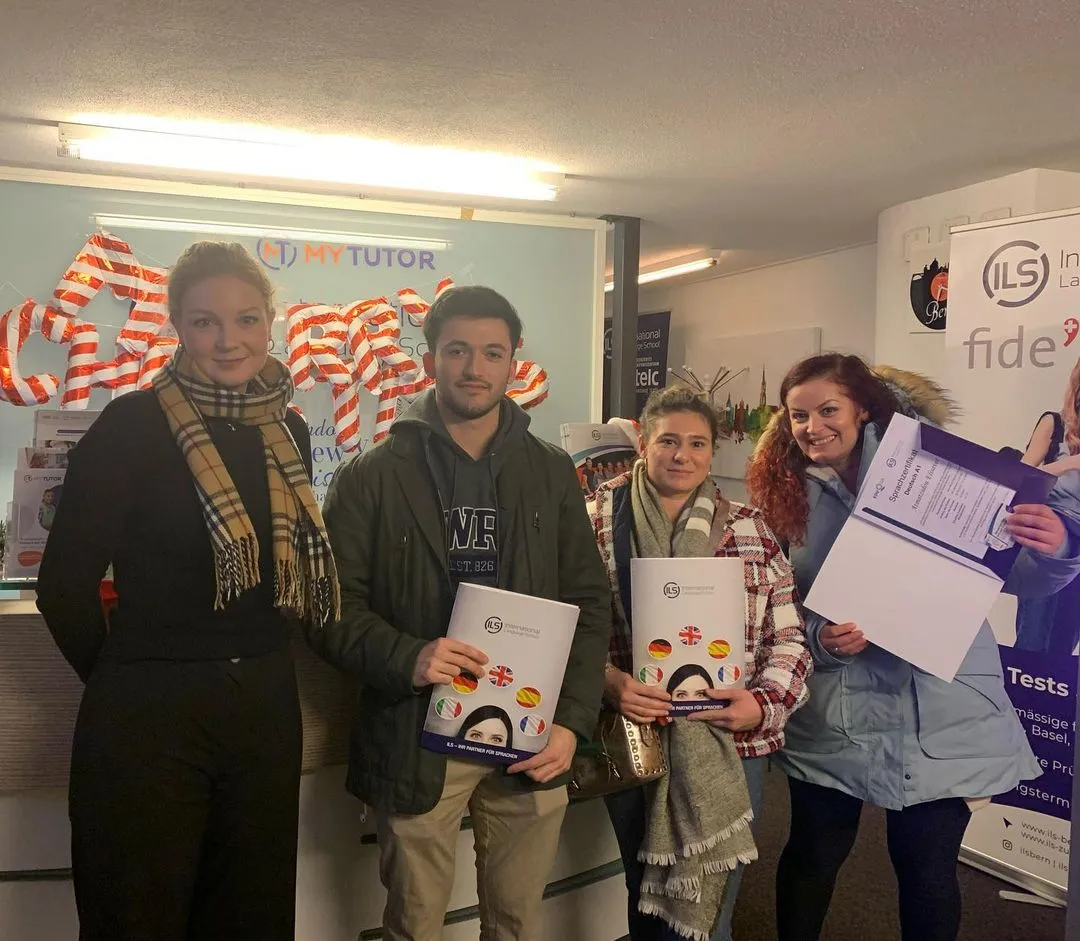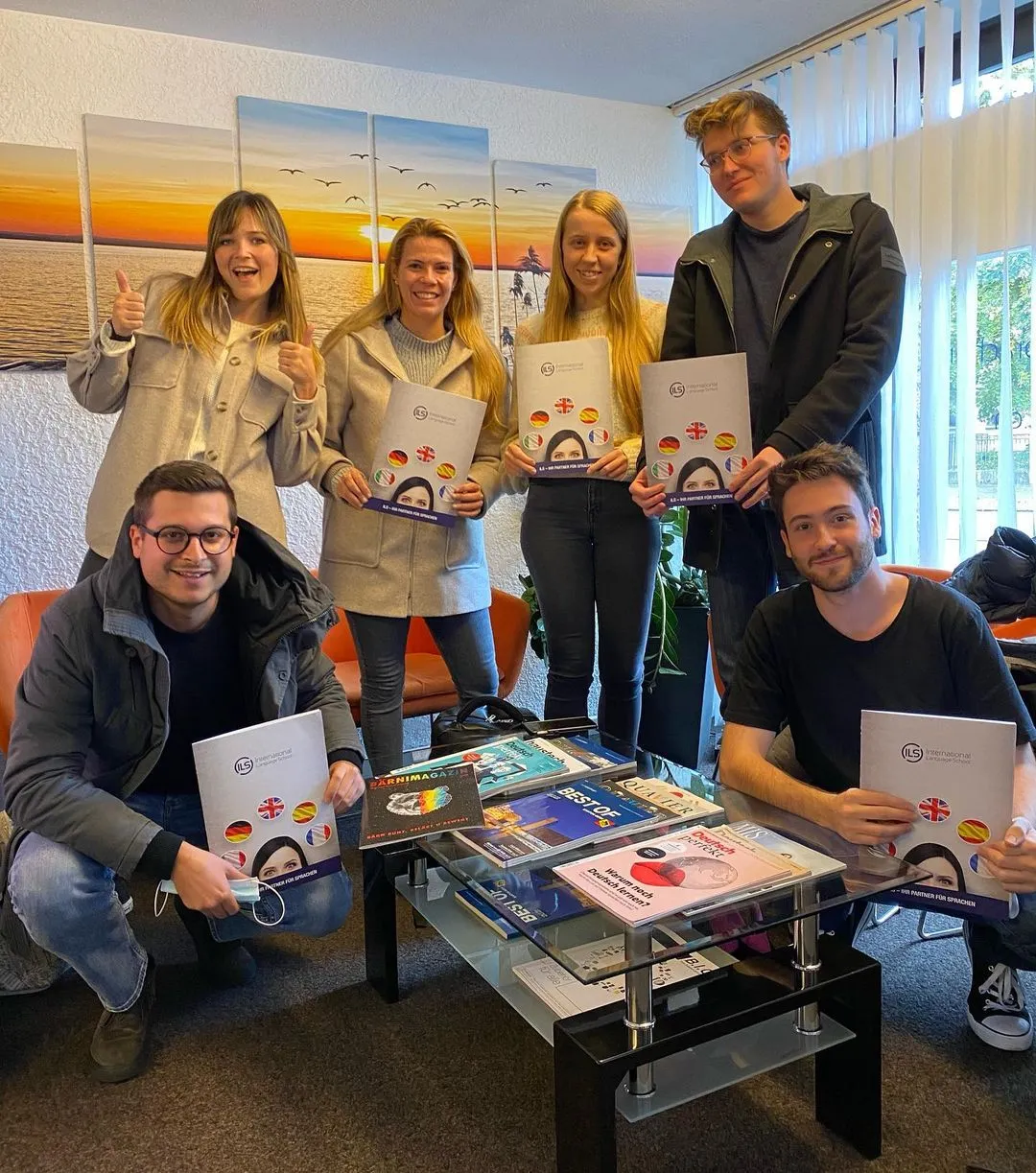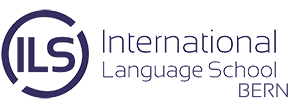
How can you learn German in Switzerland?
There are several ways to learn German in Switzerland. A great possibility are professional German courses. German courses are very intense and focus on the essential learning content of the German language. The teachers are specially trained in teaching the German language and they know exactly what is important in reality. Difficulties and problems of understanding can be resolved immediately. The course content is trained and consolidated in active exercises, which ensures long-term learning success. The correct pronunciation and fluent speaking and also a correct argumentation are trained in the conversation part or in separate conversation courses. Another advantage is that professional language courses try to make learning the language as easy as possible for the participants and that students can enjoy learning German. Experience confirms that German students who attend a German course find it easier to learn the new language, stay motivated and have more fun doing it.
Language courses are usually offered in the form of group or private lessons. The advantage of private lessons is that the students can assemble the German course individually. The special thing about group courses is that the participants can enter into a dialogue with each other and the lessons are more active.
German can also be learned online. Many learning institutions also offer their German lessons as online course with a present teacher through a video chat. Another possibility are online platforms or learning apps without a real teacher. For some people this form of learning will be enough, but it’s better to attend a German course with a real teacher. Difficulties can be clarified immediately and the correct pronunciations can be trained.
German students should integrate the language into their everyday life as often as possible. It helps to watch films or TV programs in German, listen to radio programs in German or read books in German. In addition, German students should try to talk more often to people who already speak German. You can actively apply what you’ve learned and point out mistakes.
How can you learn German as fast as possible?
In general, the more often you use German, the faster the progress will be and the fewer mistakes you’ll make. Professional German courses are a great opportunity for German learners. Regular German lessons with specific exercises and goals help the students to stay motivated. In addition, German courses focus on the essentials and teach correct German skills, which excludes misunderstandings
Experience has shown that German learners who attend a German course make much faster progress and acquire correct and fluent German skills more quickly.
How long does it take to reach a language level in German?
International language institutes assume that a language student needs around 200 lessons to get to the next higher language level.
Professional German courses significantly accelerate the learning process of German learners and focus on essential learning content. Teachers who already have several years of teaching experience are of great advantage. The intensity of a German course and the frequency of the lessons per week also have a positive effect on the speed of learning.
Other influencing factors on the learning speed are:
- The pace of learning and the receptivity of the German students
- The self-discipline of the students (practicing independently, solving tasks, conversation training etc.)
- Using German as often as possible and integrating it into everyday life accelerates learning progress and consolidates what has already been learned
Experience has shown that progress is made much faster with a professional German course, with German conversation courses and, if necessary, additional private lessons.
Where can you find German courses in Switzerland?
There are several German course providers in Switzerland. We recommend the German courses at the International Language School (ILS). The ILS has locations throughout Switzerland and has been successfully conducting language courses for many years. In addition, the ILS is characterized by happy customers and a very high level of costumer recommendation rate. Course participants have numerous options to put together their personal language lessons and adapt them to their individual needs. All teachers are specialized in their language and have many years of teaching experience. In addition, the students at the ILS have the opportunity to complete numerous language tests and to acquire language certificates. Details and further information about the ILS and their language courses, prices and course dates can be found here:
ILS Aarau https://www.ils-aarau.ch/
ILS Basel https://www.ils-basel.ch/
ILS Bern https://ils-bern.ch/
ILS Zürich https://www.ils-zuerich.ch/
How much do German courses cost in Switzerland?
The costs for a German course vary from language school to language school. There are a number of language schools, learning institutes, online language learning websites, language learning apps and private German teachers. How much a German course costs also depends on the language level and the teacher. Students as German teachers are sometimes cheaper than trained teachers with many years of experience. On the websites you can find out everything about the prices and course details as well as the qualifications of the teachers. In any case, it’s advisable to invest in a professional and high-quality German course, because this ensures long-term and fluent language skills.
Why is it important to learn German in Switzerland?
German is among the 10 most commonly spoken languages in the world and is one of the most important commercial languages across Europe. In addition, it’s the second most frequently used language in the scientific field worldwide. Within the EU, most people speak German as their native language.
The German language is also of enormous importance in Switzerland. It is widely spoken in Switzerland and accounts for a significant part of the Swiss education system. It is part of numerous entrance exams in Swiss schools and one of the most important subjects. Correct expression in German is a basic requirement for almost all employers in Switzerland and enormously increases career opportunities abroad. Letters of application and formal telephone calls in particular are usually written and conducted in Standard German in Switzerland. Knowledge of German is also required for naturalization.
Mastering the German language is not only smart from a career point of view, but also from a cultural point of view. Especially in Switzerland you can’t avoid it. On Swiss TV, radio, cultural institutions and events the main language spoken is German. The German language therefore also helps to gain access to and integrate into Swiss society and culture.
Where can you find German courses for children in Switzerland?
In Switzerland there are several German courses especially for children. The Kids and Teen language courses at ILS or the German tutoring at Mytutor are particularly recommended. Mytutor specializes in tutoring and lessons for children, young people and trainees. Pupils in lower, middle and upper school (secondary and high school) have a wide range of tutoring options at Mytutor. All teachers at Mytutor specialize in their respective fields and have many years of teaching experience.
What does a professional German course include?
A professional German course covers all the important and basic grammar rules of the German language (adapted to the respective language level). It starts with the “basics” like simple grammar topics, which are often used in everyday life and enable simple understanding. As the language level increases, the topics become more difficult, extensive and complex.
Learning the necessary vocabulary is also fundamental. A broad vocabulary enables learners to communicate and to form sentences both verbally and writing. It is also true that as the language level increases, the vocabulary becomes more extensive and the words sometimes more complicated. Mastering vocabulary is one of the fundamental cornerstones of learning a foreign language. After all, without the necessary vocabulary, German learners cannot apply the grammar rules they have learned, communicate in German or express themselves verbosely and appropriately on a topic. As a rule, the course participants should learn the vocabulary independently (as homework) and practice it continuously so that they can then be applied and consolidated in the classroom.
Another part of German lessons are exercises, (home)work, written assignments and (team)work. The continuous practice of the foreign language in a variety of ways ensures that what has been learned is consolidated and long-term learning success is ensured. With the help of exercises, the course participants also notice whether they have actually understood the relevant grammar topic and can apply it. The topics are trained and consolidated in numerous exercises in various ways – in writing, gap texts, dictations, text exercises, orally in dialogues or playful in active group lessons. Listening, reading and text comprehension are also trained in different forms.
You will also learn how to correctly write texts, cover letters, letters and essays or short stories in German courses. This is particularly important if German is being learned for professional reasons. The correct writing of texts in formal correspondence is very meaningful and leaves a lasting positive impression.
In addition, professional language courses always include a conversation part and special didactic exercises. It is important to practice correct pronunciation and speaking fluently. Conducting conversations is used most frequently by German learners in everyday life. Some language schools also offer special conversation courses separately, which focus on correct pronunciation, expressing one’s own opinion, correct argumentation and speaking eloquently. The focus is on active language training. In addition, participants of conversation courses also benefit from the fact that current topics are talked about and discussed. Current topics are explained, broken down and pros and cons are listed. As a result, this also expands the general education and the German learners can form their own opinion on important topics. However, timeless, everlastingly important, interesting topics are also addressed and discussed. The conversation part is one of the most exciting for many language students and the ideal opportunity to prove their previous skills without pressure.
Qualitative language courses are always characterized by the fact that the teachers convey the course content in a comprehensible way, recognize difficulties, detect gaps in knowledge and can immediately remedy problems of understanding. The teachers specialize in teaching the German language and know various ways and means of conveying the topics to language learners in depth. Course participants benefit from the many years of experience of the teachers.
Professional German courses are also characterized by excellent administration on the part of the language school. A well-established and informative website, clearly communicated points of contact and contact persons, transparent course details and specific information on the German courses and qualifications of the teachers, as well as smooth processes in the secretariat (registration, information, contact persons etc.) and the professional handling of specific customer needs and concerns are crucial cornerstones for a high-quality language school.






